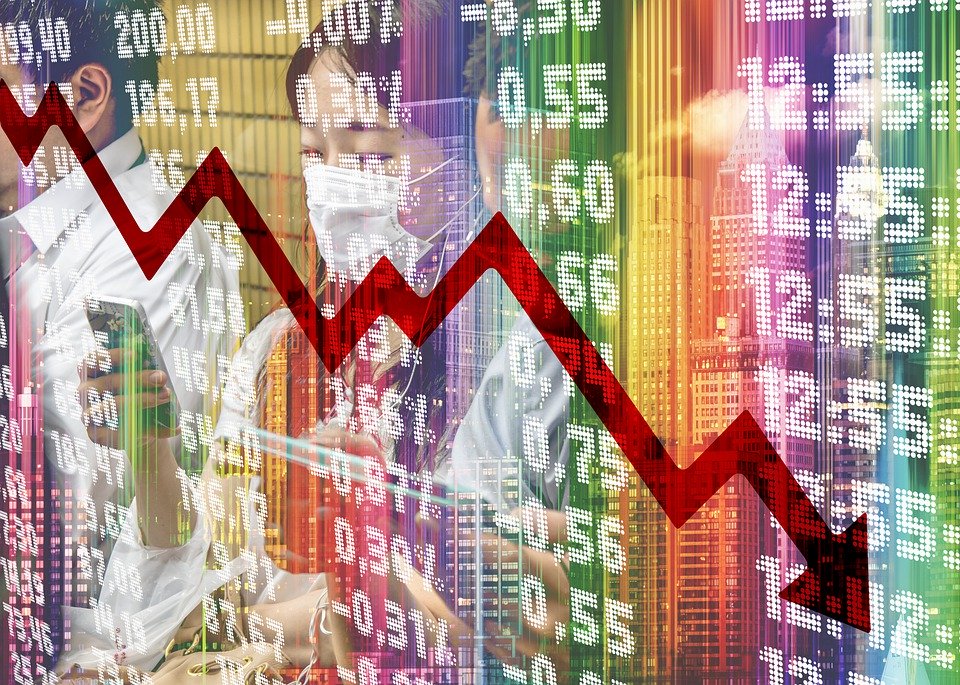Global markets are in turmoil. And technology startups in emerging markets will feel the brunt of the crisis that will ensue during and when the pandemic blows over.
According to a Stears Business report, simultaneous demand and supply shock stemming from the closure of whole countries and their industries especially in global economic powerhouses like China will have ripple effects that will be felt across the world. In China, between January and February, industrial output fell by a record 13.5%1, retail sales fell by 20.5% and investment dropped by nearly 25%.
Unemployment hit a record high of 6.2% similarly seen in the United States where unemployment has risen sharply from 3.5% in February to 17% by the end of March.
While it is unclear what this lockdown will mean for economies in Africa, global economic indices are already spelling the magnitude of trouble last seen after the World Trade Center attacks.
StartupSouth, in light of these uncertainties, organised a virtual conference on Monday bringing together key business and technology stakeholders to discuss what this means for entrepreneurs and investors and how they can adapt to survive the times. As Ojoma Ochai, Director, Programmes at British Council put it, one of the oddly beautiful things about this crisis is how we are seeing, as a continent, that there is a whole lot more that we can do with technology in spite of all the infrastructure shortcomings.
What the coming weeks or months hold is unknown but for startup founders and angel investors in the ecosystem, there are some next steps to take that can help you prepare for what will come.
According to Ben White, Founder/CEO, VC4A, as an entrepreneur, now is definitely not the time to be pushing any fundraising or M&As.
“It is definitely not a good time to go out to try to raise capital. Now is the time to lock down your cash resources,” White said.
“Whatever you can do to bolster your cash acquisition, you need to do that and you need to buy time. And that’s the real challenge with this situation. We don’t know how long it’s going to take.”
He has also advised entrepreneurs to reassess their pipelines taking into consideration that customers are going to pull back at this time as businesses close due to lockdowns, jobs are on the line and spending power decreases. It is important, he says, for founders to focus on their best customers and double down on the clients that are paying the bills.
“The last thing you want is all this distraction to result in a poor customer service. Don’t give people a reason to pass you up as a service provider.”
But he makes no gainsaying when he declares that there will be businesses who will come out on the right side of the COVID-19 pandemic.
“There’s a lot of opportunity for people [startups] right now to prove to people [investors] why your company is the one that we [investors] should be supporting. The companies that survive this storm, and there will be fewer of them, will raise, I think, larger rounds on the whole and they will get considerable support from the investment community,” White said.
Bradley Shaw, Regional Manager, MEA, NuRAN Wireless echoes this ideo adding that it will not necessarily be an all gloom and doom affair. As we are already seeing, the pandemic is definitely presenting business opportunities across various sectors and those who take due advantage of it will come out winners.
“There are businesses for whom the COVID-19 situation presents opportunities and competitive advantage. Anything that allows you do something remotely right now, is a winner,” said Shaw.
Idris Bello’s first call to angel investors, many of whom may be encountering a crisis of such magnificent scale for the first time, is to ensure the well being of themselves and the communities of their portfolio companies.
“So, your founders, their teams, that is the first call,” Bello, who is an angel investor and Founding Partner at early-stage VC LoftyInc Capital Management, said.
A lot of entrepreneurs will be faced with some tough decisions as they try to navigate liquidity crisis, layoffs, customer losses, and distorted sales cycles but coming out triumphant at the end boils down to being able to decide what should stay and what should go and advice from their investors will be very critical at this time.
“By the nature of early stage investment itself, most of our companies ultimately fail, but what this crisis will do is accelerate some of those failures,” Bello said. And this is good for early-stage investors.
Investors will also need to be able to make critical, business decisions regarding which of their portfolio companies will continue to receive capital support or for whom more monetary injection will only prolong the inevitable.
“The good news is the companies that make it through this are probably going to be stronger,” Bello said adding that some of the successful companies they’ve invested in came through similarly difficult times; an investment in Andela during the height of the Ebola crisis in 2014, and Flutterwave during the height of the Nigerian recession (2015/16).
“And these are some of the companies that have brought us very huge returns.”
Bello says this is also an opportunity for more realistic and modest valuations, more thorough due diligence as well as an eye opener for investors to chase after more diversified portfolios.





















